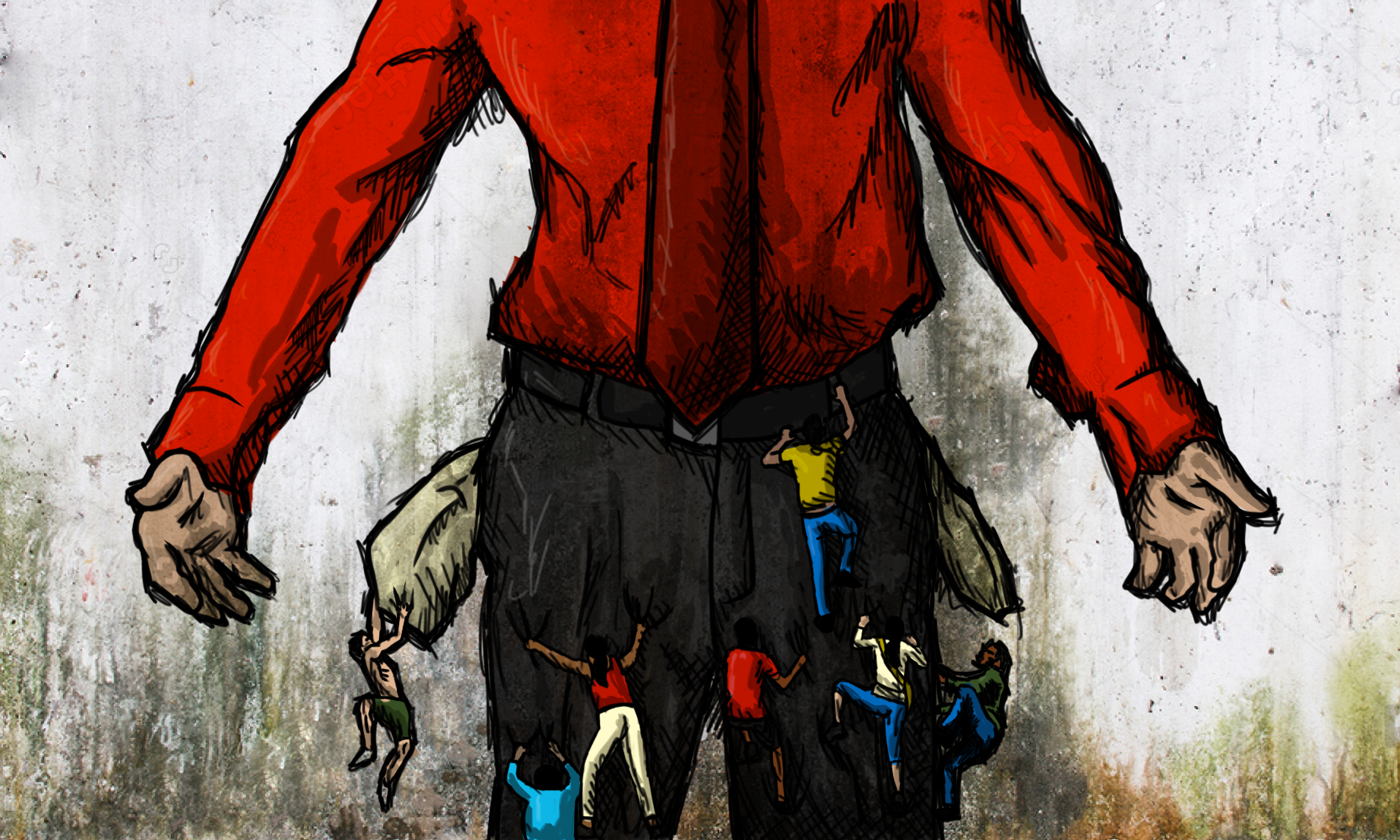President Maduro’s Handy Guide to
Hyperinflation
“What
was once the most prosperous country in the region
is now a man-made disaster.” —Virginia Lopez Glass
is now a man-made disaster.” —Virginia Lopez Glass
Take this
brick of bills,
pack in mud and clay.
Use to patch the holes
in your ranchito.
pack in mud and clay.
Use to patch the holes
in your ranchito.
Press Simón
Bolívar
into your torn camisas.
Sew them closed as long
as the paper will hold.
into your torn camisas.
Sew them closed as long
as the paper will hold.
When stores
run out of toilet paper
clean your mierda on the back
of a giant armadillo.
Your feces are worth more.
clean your mierda on the back
of a giant armadillo.
Your feces are worth more.
When your
ribs pierce the
torso for want of fat and
muscle mass, boil bolívares
in salt and dirty water.
torso for want of fat and
muscle mass, boil bolívares
in salt and dirty water.
Tear them
first into small pieces
and chew them slowly.
Swallow them with rat blood
so you do not choke.
and chew them slowly.
Swallow them with rat blood
so you do not choke.

When Hugo Rafael Chávez Frías died in 2013 he was succeeded as the president of the República Bolivariana de Venezuela by his vice-president Nicolás Maduro Moros. Through decrees passed by the legislature, he began to rule by decree 8 months later. The policies of chavismo pursued by both rulers led to increasing crime, inflation, poverty, hunger, and social unrest as the price of oil fell. American economist Arthur Okun created the misery index, derived by adding the seasonally adjusted unemployment rate to the annual inflation rate; Venezuela ranked #1 on the index every year from 2013-2016, and the gross domestic product halved. By 2017, hunger had escalated to the point where nearly 75% of the population had lost an average of over 8 kg (over 19 lbs) in weight, and more than 1/2 did not have enough income to meet their basic food needs. By the end of 2018, over 90% of the population was below the poverty line, and almost 10% of Venezuelans (3 million) had left the country. Venezuela led the world in murder rates, with 56.3 per 100,000 people killed in 2016. That year, hyperinflation began, reaching 80,000% per year by the end of 2018 and climbing. Chávez had revalued the bolívar at a ratio of 1,000: 1 and renamed the currency the bolívar fuerte (strong bolívar), but it was replaced in 2018 by the bolívar soberano, replaced at the rate of 100,000: 1. Four months after the introduction of the new currency, a bolívar was worth about US$0.001, and shops and state banks began to refuse to accept it. The currency is named after Simon Bolívar, who had achieved independence for Venezuela, Colombia, Panama, Ecuador, and Peru and briefly united them as a single nation called Gran Colombia in the early 1800s.
ReplyDeleteRanchitos are tenements in the low-income barrios, usually made of cement blocks. A camisa is a smock or shirt. Mierda is excrement. Virginia Lopez Glass was a journalist working for Al Jazeera Enlish and then "The Globe and Mail."
Thank you for including this information with my poem. As a native Venezuelan who was raised in the states, I still have family there and the humanitarian crisis is heartbreaking. I hope I can continue to call attention to the atrocities one poem at a time.
Delete